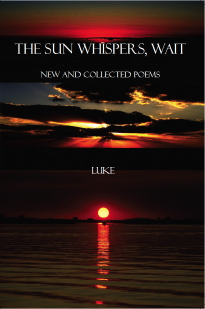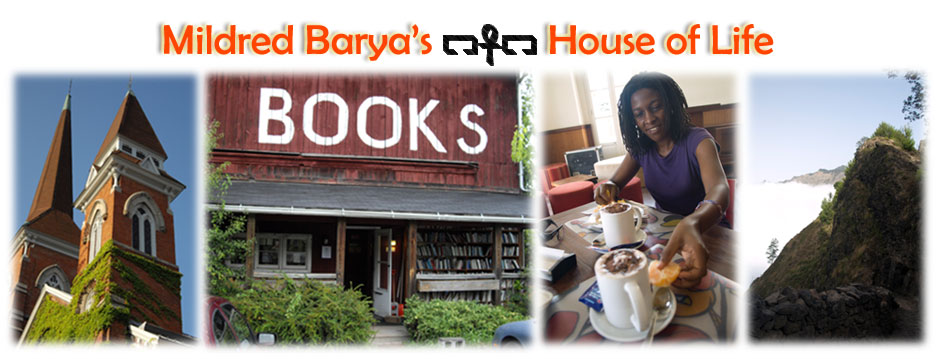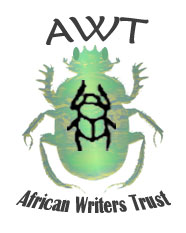 When I opened The Sun Whispers, Wait, a collection of poems from Luke, aka Joseph A Brown, I was glad that I read the introduction and discovered that October 18th is a significant day: Luke, the Evangelist, is honored within the Roman Catholic liturgical calendar, and it also happens to be the birthday of Luke’s father–not the apostle but the author of these poems. So I thought what a beautiful thing to share my favorite Luke poems on a day that means a lot to him not just as a son but as a poet and Jesuit priest.
When I opened The Sun Whispers, Wait, a collection of poems from Luke, aka Joseph A Brown, I was glad that I read the introduction and discovered that October 18th is a significant day: Luke, the Evangelist, is honored within the Roman Catholic liturgical calendar, and it also happens to be the birthday of Luke’s father–not the apostle but the author of these poems. So I thought what a beautiful thing to share my favorite Luke poems on a day that means a lot to him not just as a son but as a poet and Jesuit priest.
I was drawn to the first section of the collection, especially the first poem: “Lord Knows,” which brought to my mind my own father’s story of how he went to school. My father was in primary seven when his mother untied the thongs of her long skirt to reveal two cents hidden beneath her garments. “This is all I have left to educate you,” she said, and placed the cents in my father’s hands. “You’re on your own from now on.” My father took the cents to the principal, and also negotiated a deal: he would work in the school gardens to make up for school fees. That’s how Dad made for himself a road, just like the poem says.
LORD KNOWS
lord knows honey
she said folding her hands
into the flowers of her apron
you got to make your
own road
sometime
it was her wisdom
so i waited
coming and going
aint gonna do
when you get to be
old like me just
going
aint it like
some folks to jump
on their own backs
stead of using the road
to get somewhere fools
is fools but you aint never been
one you hear
sure gonna be hard
on your mama though
but she’ll do all right
now
before you go i wants to give you
a little something
to help out
and i still have it
and the dollar bill
she unfolded slowly and put
into my hand
AT THE EDGE reminds me of some of the couples I’ve known, who have been close in life that they even resemble when you look at them. Years down the road, one of them begins to lose strength and the other has to watch in fear and trepidation what might happen next, sure that death is coming, but also denying it’s presence, and carrying on like a strong soldier, wishing and hoping that life and peace will last, no matter what the afflictions.
AT THE EDGE
my mother loses breath and nerve
as she watches my father resist all
aid and ease for death
his life is
devoured in larger doses daily with-
out the rescue
of imagination he is
letting go of sound and wit and
serenity
believing it to be a game
of interference he will not narcotize
his pain and it spills
onto us all
restless angry impotent and vain to
dream what will never be he pushes
us
to dwell at the edge of a dwindling
fire a draining river and stare
her bewildered hands scream out and
grab her children
she would marry
him and bear his sons she will
grieve when he is gone
but she cannot
rest hearing him now unable to replace
pain with peace
and she does not now
how to scold him to go to sleep for fear
that he would at last obey
STORIES ABOUT CHRONE is a magnificent poem in five sections. It chronicles the story of Chrone, whose boy ran away and got killed, and Chrone hasn’t been the same since. Folks gossip about him; how crazy he is, how he’s buried some money but won’t remember where he hid it, probably saving it for his son who he won’t admit has been dead for years. He believes he will return some day. How sad can that be? The whole poem is like a bluesy song. Consider this third section:
i wonder why he wears a
wool sweater even on a hot
day
my grandma said it’s
just that he’s old older
than abraham
and daddy said
yeah and he taught the snake
how to
crawl
and been cold
ever since
With my imaginary guitar I can sing the poem to the rhythm of the blues. Eric Bibb would know best, for that’s the blues singer who comes to mind.
The poems in this collection are gentle, sweet and well crafted. They tell stories, jokes, and utilize haiku. Some are like songs in their lyrical and jazzy-bluesy nature. Others are prayers and witty questions calling for answers. Overall, the 112-paged book covers poems that demonstrate various facets of life: aging, loss, God, the spirit world, history, tragedy, and love. The collection was published in 2009 by Brown Turtle Press. The author, Luke (Joseph Brown , SJ) is the director of the Africana studies Department at Southern Illinois University, Carbondale. To read more of his poems, click here.
I’ll close with the second and third part of this Haiku
II
Our house stores sunlight
in baskets and sets it out
for the evening fire
III
The small drunk turtle
challenges the morning wind
to race to the pond






[…] own Mildred Barya continues her noteworthy series on contemporary world literature with a review of The Sun Whispers, Wait, a poetry collection by Joseph Brown, SJ, Director of the Africana studies Department. Southern […]